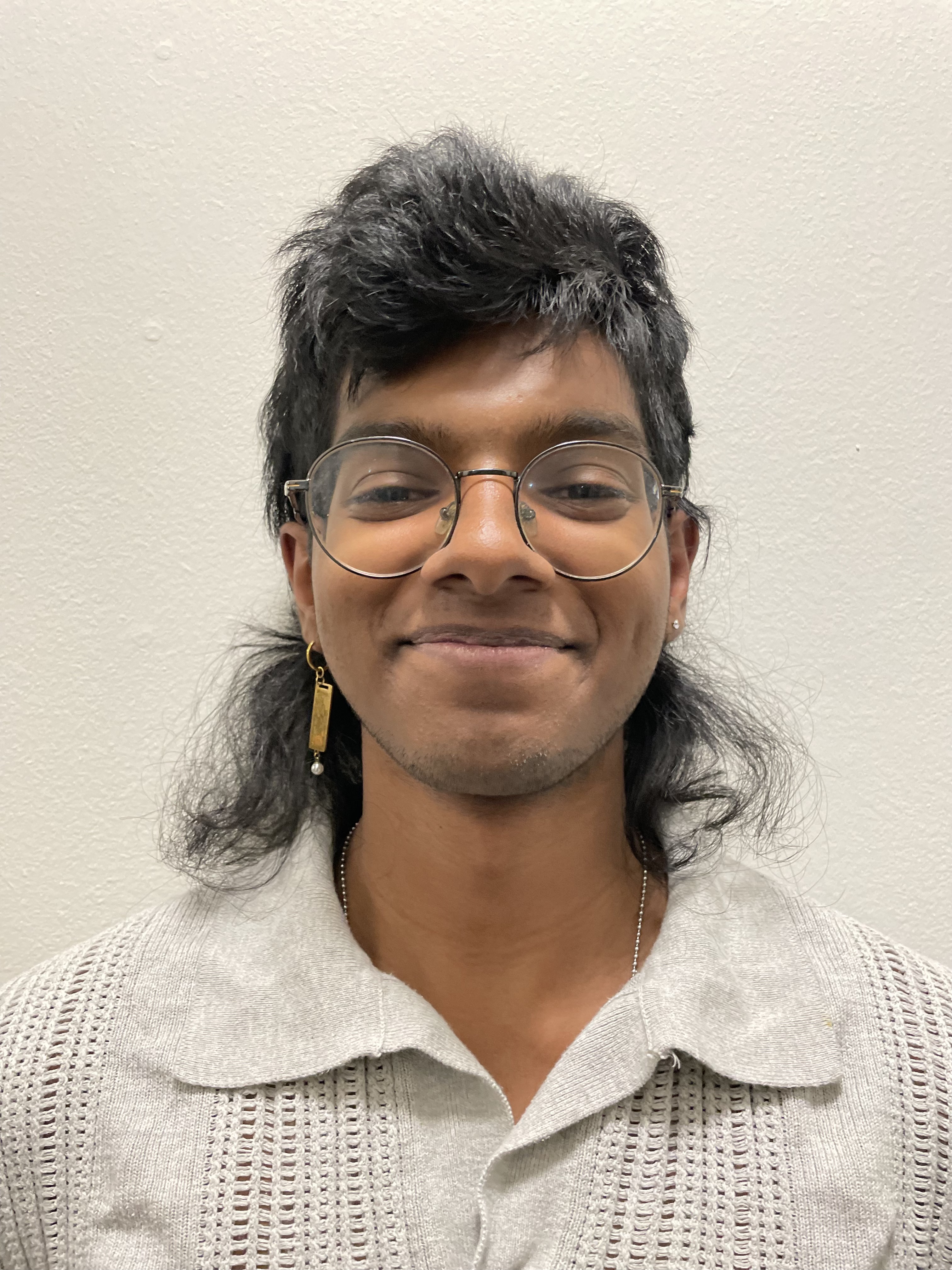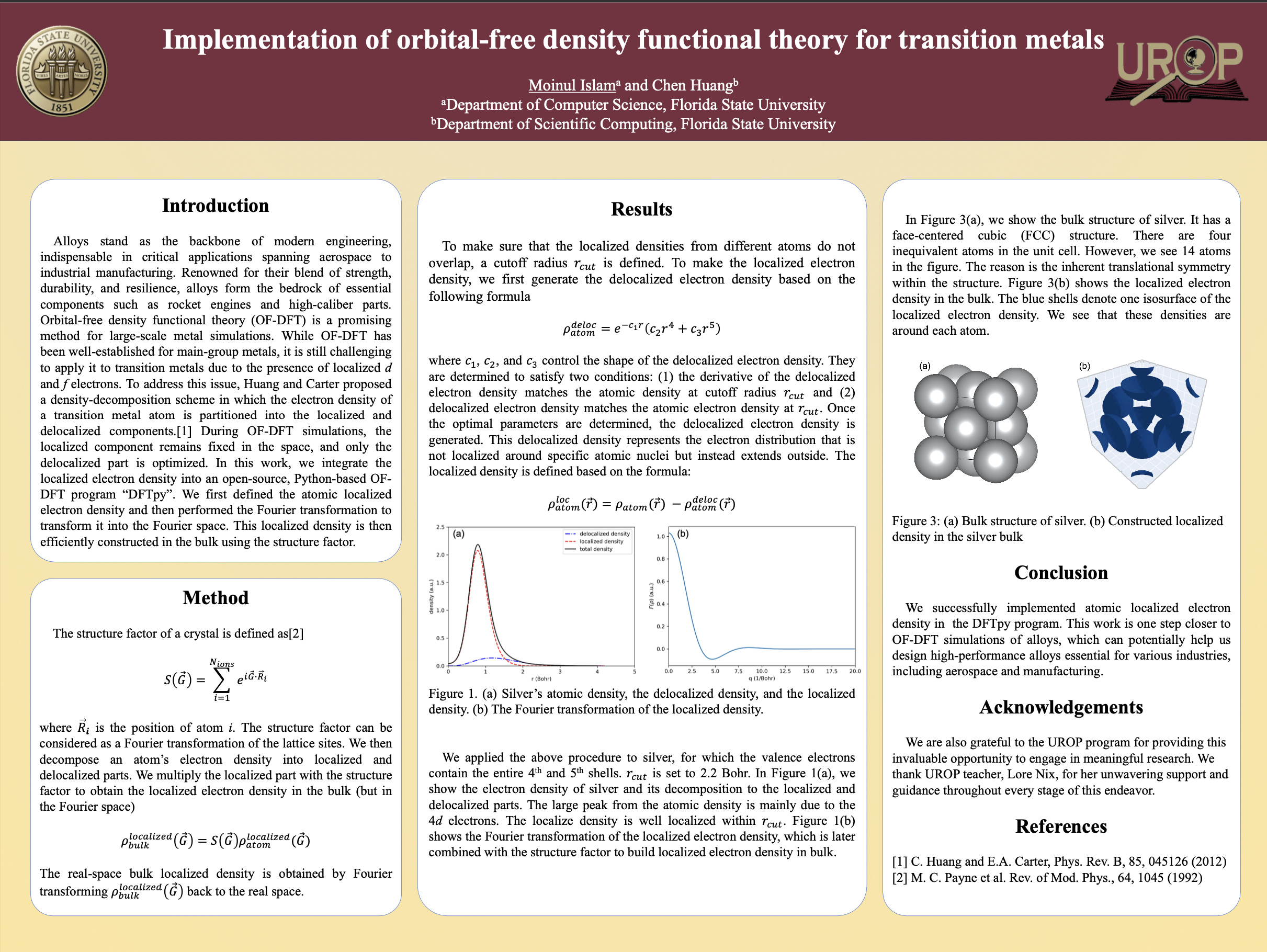Research Symposium
24th annual Undergraduate Research Symposium, April 3, 2024
Moinul Islam Poster Session 3: 1:30 pm - 2:30 pm /273

BIO
My name is Moinul Islam and i'm from Tampa, Florida, my academic journey has led me to specialize in Orbital-Free Density Functional Theory (OF-DFT) with a focus on transition metals. My research aims to apply OF-DFT to transition metals because it has been well established in main — group metals, but due to the presence of localized d and f electrons it poses an issue when discussing transition metals. With my background in Computer Science, I am dedicated to producing groundbreaking results in my field of scientific computing. My career goal is to contribute innovative insights that advance our understanding of transition metal complexes, catalysis, and materials science. With a commitment to excellence and collaboration, I aim to make significant contributions to scientific knowledge and address pressing challenges regarding OF-DFT for transition metals.
Implementation of orbital-free density functional theory for transition metals
Authors: Moinul Islam, Chen HuangStudent Major: Computer Science
Mentor: Chen Huang
Mentor's Department: Department of Scientific Computing Mentor's College: Florida State University Co-Presenters:
Abstract
Alloys stand as the backbone of modern engineering, indispensable in critical applications spanning aerospace to industrial manufacturing. Renowned for their blend of strength, durability, and resilience, alloys form the bedrock of essential components such as rocket engines and high-caliber parts. Orbital-free density functional theory (OF-DFT) is a promising method for large-scale metal simulations. While OF-DFT has been well-established for main-group metals, it is still challenging to apply it to transition metals due to the presence of localized d and f electrons. To address this issue, Huang and Carter proposed a density-decomposition scheme in which the electron density of a transition metal atom is partitioned into the localized and delocalized components. During OF-DFT simulations, the localized component remains fixed in the space, and only the delocalized part is optimized. In this work, we integrate the localized electron density into an open source, Python-based OF-DFT program “DFTpy”. We first defined the atomic localized electron density and then performed the Fourier transformation to transform it to the Fourier space. This localized density is then efficiently constructed in the bulk using the structure factor. This work is one step closer to OF-DFT simulations of alloys, which can potentially help us design high-performance alloys essential for various industries, including aerospace and manufacturing.
Keywords: OF - DFT, Scientific Computing, Alloys


